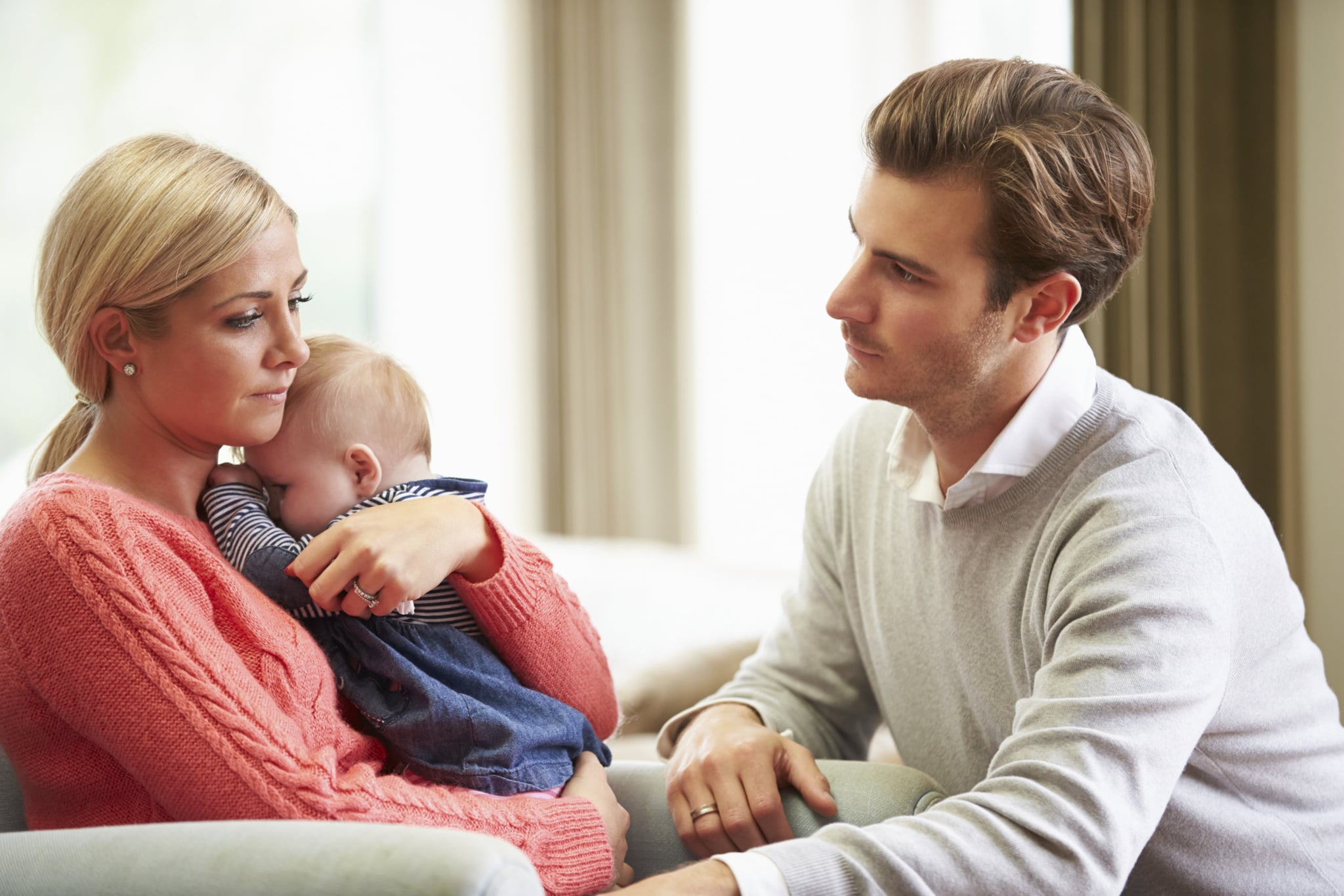
Welcoming a new baby into the world is a joyful, exciting experience . . . so why do you feel so sad? While up to 80 percent of mothers experience some form of the "baby blues" (including mood swings, tearfulness, and lack of sleep), postpartum depression is a more severe condition experienced by 10-15 percent of women after giving birth. Countless moms have weighed in with their personal postpartum depression experiences; here, we share their advice on recognizing symptoms and getting treatment.
The Basics
Postpartum depression is a form of clinical depression that can begin anytime between delivery and six months after birth and may last up to several months or even a year. The exact cause of postpartum depression is unknown, but risk factors include a history of depression, lack of a support network, stressful events, and an unstable relationship with a significant other.
Recognizing the Symptoms
There are many symptoms of postpartum depression [1], as Andrea T. shares: "Women with this condition suffer despondency, tearfulness, feelings of inadequacy, guilt, anxiety, irritability and fatigue . . . A woman with postpartum depression may regard her child with ambivalence, negativity or disinterest." Additional symptoms include loss of appetite, insomnia, severe mood swings, and withdrawal from family and friends [2].
As readers with experience with postpartum depression highlight, these symptoms can appear in a variety of combinations. Joy B., a New York mother of one, recalled that agitation and loss of appetite were dominant symptoms [3]: "I became agitated easily (which is my nature anyhow but this wasn't the same). I stopped eating properly (even though I knew I should eat, I would skip meals)." In contrast, Natalie L. suffered from feelings of detachment and an inability to bond with her child: "My husband said it was like I was there physically but Natalie had left. I couldn't cry, I couldn't laugh and I was not feeling attached to my daughter [4]. I had a sense of obligation that kept me feeding and changing her but that was it."
Treatment For Postpartum Depression
If you think you may have postpartum depression, consult with your doctor about treatments for your specific condition. Your doctor may suggest one or more of the following strategies:
- Medication: Medication is often recommended for treating postnatal depression. Many readers who suffered from postpartum depression, including Megan N., confirmed that medication can help: "There were days I thought things couldn't get any worse and others when I'd feel fine. I recommend medication [5]. I took a light dose of Zoloft for 6-9 months and then my Dr. took me off and I felt fine again." And as Sarah T. advised, there are several medications for postpartum depression that are safe to take while breastfeeding [6]: "I saw my doctor last week and was prescribed Lexapro — safe to take while breastfeeding, thank goodness!"
- Talk Therapy: Talking with a professional therapist is another treatment for postpartum depression recommended by many readers. Toni B. explains: "Counseling was great for me [7]; talking aloud to someone who doesn't know me outside of that room, or my family/friends, was really freeing for me — talking about things aloud for the first time, and having my actions questioned was crucial for me to understand how I need to help myself." Your doctor can provide referrals to mental health therapists specializing in postpartum depression.
- Support Networks: In addition to medication and therapy, establishing or returning to a strong support network can help relieve postnatal depression. Even though you may feel isolated or detached, Andrea T. recommends: "Spend time with your partner and/or close friends. Share your feelings and ask for help. Consult your doctor and look for a local support group [8]."
- Sunlight and Exercise: In addition to the treatments above, natural mood boosters like sunshine and exercise have helped many moms alleviate their postpartum depression. Brenda A. shares: "While medicine is often necessary to combat this disease there are other factors to look at if it's a mild case. Are you exercising, getting sunlight, sleeping as often as possible . . . I personally think my best defense has always been a walk in the sunshine [9]." Virginia mom Kelsey B. agrees: "Seriously, the sunshine is a natural anti-depressant [10]. Take advantage of sunshine and go for a walk or open a window when the sun is shining through it and breathe the fresh air and meditate there for 10-30 minutes. You'll be surprised at how much the sun makes you feel better." In addition to walking, Samantha S. found running helped alleviate her postpartum depression: "I started running. It works. Just a walk in the stroller one a day, then move to twice a day, then start a slow jog. Makes me feel great."